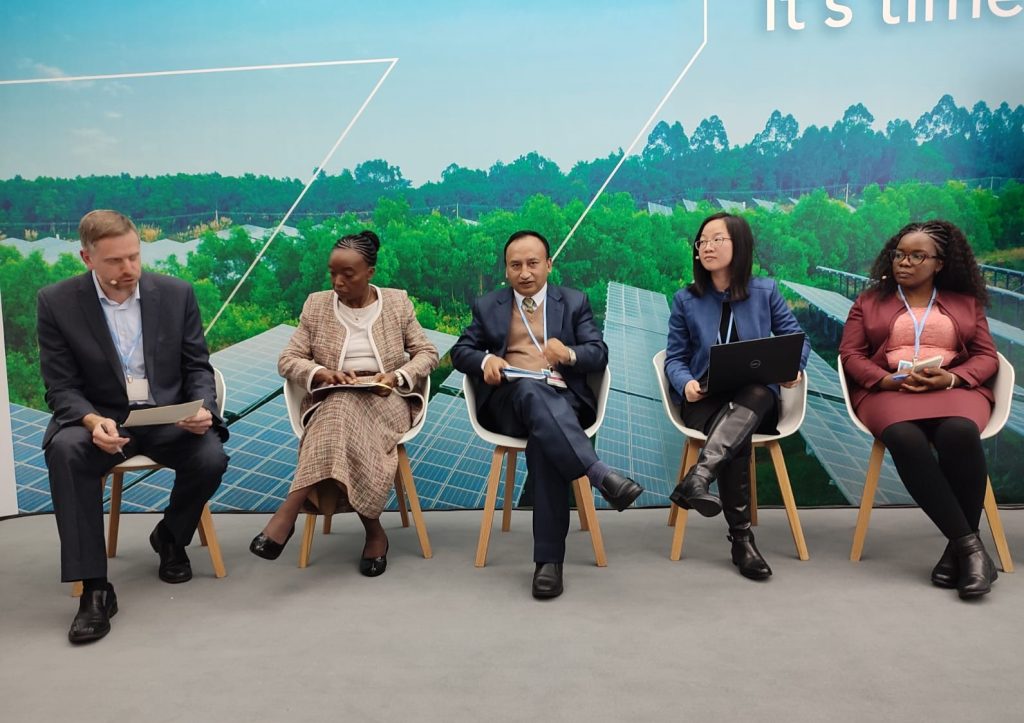
- Date
- 28th October 2021
- Categories
- General
The Modern Energy Cooking Services (MECS) programme hosted an official COP26 side event on Monday 1st November in the SDG7 Pavilion, entitled “SDG7: How do we Scale Low Carbon Cooking?”.
The event was organised in collaboration with the Government of Kenya (Ministry of Energy), World Bank (Energy Sector Management Assistance Program), Clean Cooking Alliance, Transforming Energy Access programme, Efficiency for Access, the Energy Network Nexus, the Africa-Europe Partnership, ENERGIA and the Climate Compatible Growth (CCG) programme.
ABOUT THE SIDE EVENT
SDG7 seeks to expand energy access, transition to renewable energy and promote energy efficiency. The MECS programme and our partners organised this session with an objective to address all three of these components through clean cooking.
Clean cooking has been a neglected component of the SDG Agenda. Four billion people continue to lack access to modern energy cooking services affecting their living standards, health, economies and the local and global environments (deforestation). Our session focused on the growing international political will to finally tackle the clean cooking challenge head-on and to ensure it includes expressly a ‘net zero by 2050’ strategy. It brought together policy makers, private sector actors, researchers and civil society to debate and discuss how best to encourage appropriate enabling frameworks and support emerging enthusiastic private sector responses to scale modern and low carbon cooking solutions for all.

Participants included stakeholders engaged in national energy planning, international assistance programmes, international finance (particularly new forms of carbon finance), public utility management and the large and small-scale private sectors.
This session built on earlier work by MECS and partners, wherein we presented a net zero approach to cooking via the use of renewable energy and energy efficient cooking appliances (see our 40, 60 by 2030 call).
Highlights
Please see below for the recording of the session.
The high-level panel, which included speakers from policy and practice, presented key actions needed to accelerating an inclusive and just transition to modern energy for cooking for all. Below are some highlights of the discussion:
The SDG7 Pavilion at COP26 is hosting over 80 side events that you can join in-person or virtually from 1-12 November. The full agenda for the SDG7 Pavilion can be viewed here.